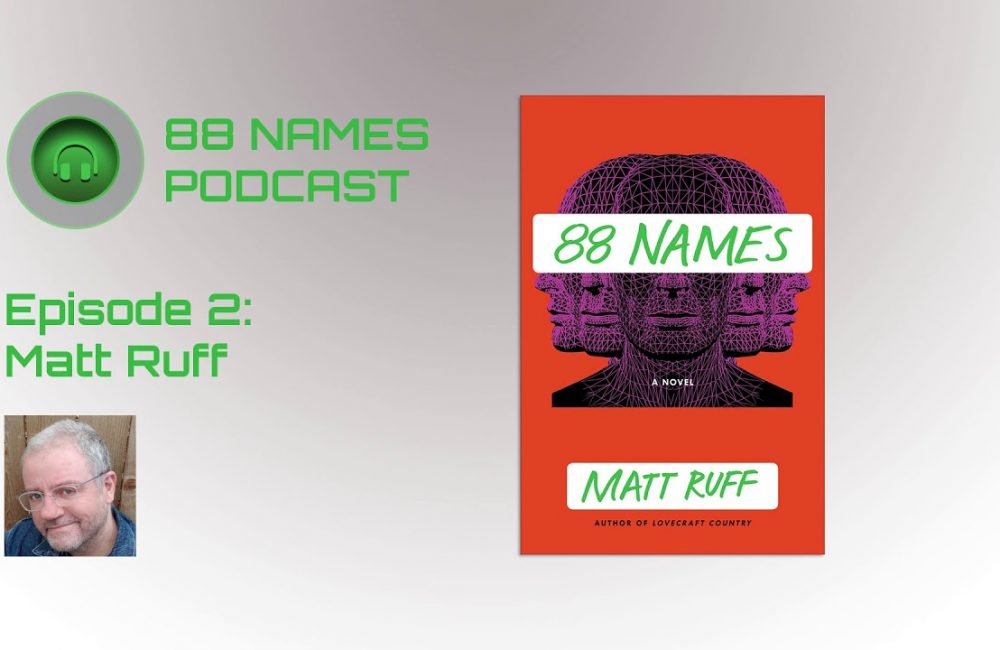Blake Collier turns his sites on his co-host, Matt Ruff, and digs into numerous aspects of his new book which you can purchase through links on the podcast website! Matt talks about how he originates his unique ideas for books and when the ideas finally click together into a whole story, casting his characters and what it means as an author to truly seek diversity in novels, and what motivates the story of 88 Names. Then we turn to some of the ideas in the books like how this technology affects the human taxonomy, what truth even is in a pseudonymous world, and where sex and technology collide (pun intended!). This is a deep dive into what is a truly entertaining and compelling read. However, don’t take our word for it, read it for yourself! It is available wherever you get books! Matt Ruff is the award-winning author of seven novels, including Fool on the Hill, Set This House in Order, Bad Monkeys, The Mirage, and Sewer, Gas & Electric. His novel Lovecraft Country is being produced as an HBO series by Jordan Peele, Misha Green, and J.J. Abrams. In Ruff’s new novel, 88 Names, we meet John Chu, an online “sherpa” who provides ready-made characters and expertise to rich clients who wish to dabble in VR role-playing games. Chu suspects that his latest client, the pseudonymous Mr. Jones, may actually be North Korean dictator Kim Jong-un, whose interest in VR gaming has more to do with power than entertainment. The ensuing cat-and-mouse game plays out largely in virtual reality, where everyone Chu interacts with—friend or foe—is an avatar whose true identity and motives he must constantly question. 88 Names combines a gripping and fast-paced adventure with a thoughtful exploration of the social implications of VR technology. Publishers Weekly calls 88 Names “pure geek gold,” and Booklist writes in a starred review, “Ruff’s richly imagined world of next-generation internet is plausible and a bit frightening. The action inside the virtual gaming world is sleek and exciting, but the extrapolation of identity, friendship, and human relationships makes the narrative shine.”









